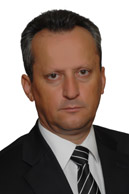
TRAJKO VELJANOSKI
PRESIDENT OF THE ASSEMBLY OF THE REPUBLIC OF MACEDONIA
Contact information
Department of cabinet of the President of the Assembly of the Republic of Macedonia
Telephone: 3113-268, 3112-255 Ext. 353
E-mail: pretsedatel@sobranie.mk
Trajko Veljanoski was born on 2 November 1962 in Skopje. He graduated from the Law Faculty at the Ss. Cyril and Methodius University. In 1988 he passed the bar examination and started an independent law office the same year. He worked as a lawyer until 1999.
He started his political engagement in 1993 by joining VMRO-DPMNE. His political activity has been closely related to his professional vocation - law and legislation. For a number of years he has headed the VMRO-DPMNE Legal Affairs Committee, and has been a member of the Party's Political System Committee. He has also headed the VMRO-DPMNE Forum on Legal and Political Affairs and Judicial System.
In 1999 he was elected Under-Secretary in the Ministry of Justice in the Government of the Republic of Macedonia, and soon afterwards he became Deputy Minister in the same Ministry. In both positions, he was particularly involved in the process of drafting laws and their adoption in the Assembly and its working bodies. At the same time, he was engaged in preparations of a series of international bilateral and multilateral agreements, and participated in international meetings, conferences and seminars.
During this period, he was member of the President of the Republic's Committee of Appeals and Member of the Managing Board of the Center for European Integration.
In a number of election rounds, including presidential, parliamentary and local elections, he has been involved as a Member of the State Election Commission.
At the 2006 Parliamentary Elections Trajko Veljanoski was elected Member of the Assembly of the Republic of Macedonia during which parliamentary mandate, until April 2008 he was Chairman of the Assembly's Committee on Election and Appointment Issues. At the elections in June 2008 he was re-elected Member of the Assembly, and at the Constitutive Session of the new Assembly's mandate he was elected President of the Assembly of the Republic of Macedonia.
In the elections in June 2011, he was elected as an MP for the third time, and at the Constitutive session of the Assembly of the Republic of Macedonia he was re-elected as President of the Assembly.
Trajko Veljanoski is married and is a father of two children.
Activities in the Assembly:
- Committee on Constitutional Issues, Chair
- Delegation of the Assembly o the Republic of Macedonia to the Inter-Parliamentary Union (IPU), Head of Delegation
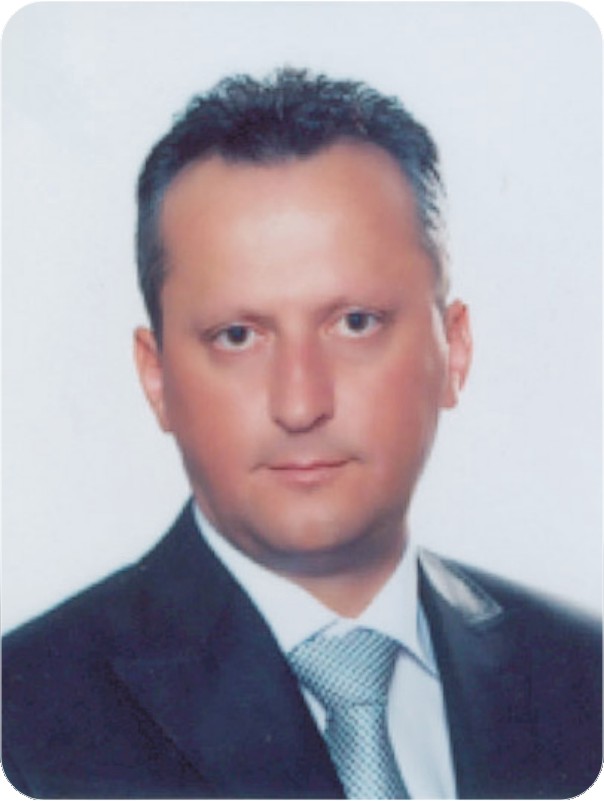
TRAJKO VELJANOSKI
PRESIDENT OF THE ASSEMBLY OF THE REPUBLIC OF MACEDONIA
Contact information
Department of cabinet of the President of the Assembly of the Republic of Macedonia
Telephone: 3113-268, 3112-255 Ext. 353
e-mail: pretsedatel@sobranie.mk
Trajko Veljanoski was born on 2 November 1962 in Skopje. He graduated from the Law Faculty at the Ss. Cyril and Methodius University. In 1988 he passed the bar examination and started an independent law office the same year. He worked as a lawyer until 1999.
He started his political engagement in 1993 by joining VMRO-DPMNE. His political activity has been closely related to his professional vocation - law and legislation. For a number of years he has headed the VMRO-DPMNE Legal Affairs Committee, and has been a member of the Party's Political System Committee. He has also headed the VMRO-DPMNE Forum on Legal and Political Affairs and Judicial System.
In 1999 he was elected Under-Secretary in the Ministry of Justice in the Government of the Republic of Macedonia, and soon afterwards he became Deputy Minister in the same Ministry. In both positions, he was particularly involved in the process of drafting laws and their adoption in the Assembly and its working bodies. At the same time, he was engaged in preparations of a series of international bilateral and multilateral agreements, and participated in international meetings, conferences and seminars.
During this period, he was member of the President of the Republic's Committee of Appeals and Member of the Managing Board of the Center for European Integration.
In a number of election rounds, including presidential, parliamentary and local elections, he has been involved as a Member of the State Election Commission.
At the 2006 Parliamentary Elections Trajko Veljanoski was elected Member of the Assembly of the Republic of Macedonia during which parliamentary mandate, until April 2008 he was Chairman of the Assembly's Committee on Election and Appointment Issues. At the elections in June 2008 he was re-elected Member of the Assembly, and at the Constitutive Session of the new Assembly's mandate he was elected President of the Assembly of the Republic of Macedonia.
Trajko Veljanoski is married and is a father of two children.
Activities in the Assembly:
- Committee on Constitutional Issues, Chair
- Delegation of the Assembly of the Republic of Macedonia to the Inter-Parliamentary Union, Chair
|
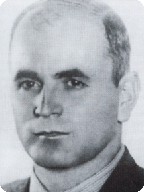
METODIJA ANDONOV- CHENTO
Metodija Andonov-Chento comes from a poor rural family. He was born in Prilep, on 17 August 1902. When he was very young he cooperated with the younger intellectuals in the city, and he was noticed as a separatist and autonomist who motivated the people and undermined the King's authority, for which he was imprisoned for several months. He encouraged Macedonian children to learn the Macedonian language and to speak it freely. Following the Serbs, Bulgarians took over the power and sent him to a concentration camp, where he was imprisoned until 1943. Chento joined the partisans on 1 October 1943.
He was a salesman, well respected because of his honesty and patriotism he openly expressed. As a distinguished citizen, he was involved in the political life of Prilep. At the elections held in 1938, as an independent candidate at the list of the opposition, he won majority of the votes. It was decided, however, that he did not get elected as an independent deputy because of the manipulation of the election system by the authorities of the greater Serbia. Chento was one of the organisers of the Ilinden demonstrations in Prilep in 1939, and for this he was imprisoned in Velika Kikinda. Since 1940 he was advocating the use of the mother tongue in the education and again was imprisoned in Bajina Bashta.
During the Bulgarian Occupation, he was sent to the “Chuchuligovo” prison camp, in Petrich. After the imprisonment, in October 1943, he passed over to the liberated territory and joined the Initiative Committee for convening the ASNOM meeting. Soon he was elected President of the Committee.
On 2 August 1944, as participant in the First Meeting of ASNOM, he was elected the President of the Presidium of this highest state body of the Democratic Federal Macedonia, later renamed People’s Republic of Macedonia. As is well known, the major historical decisions, upon which the Macedonian state was established, were adopted at this Meeting. He was also a Delegate and Member of AVNOJ.
Metodija Andonov – Chento was elected as President of the Presidium on the Second Meeting of ASNOM, on 29 and 30 December 1944. He was the first President of the National Assembly of PRM.
In his political attitudes he advocated greater independence of the Republic with regard to the Federal bodies. At the same time, he raised the issue of the unification of Macedonia. These views were in conflict with the official policy.
In 1946 he was excluded from the Communist Party of Yugoslavia and he resigned from all the positions he held. He was accused of nationalism – that he wanted the People’s Republic of Macedonia to break away from the Federation and placed under American protectorate. He was sentenced to 11 years imprisonment, and was in prison until September 1955. He died in Prilep on 24 July 1957.
He was rehabilitated in 1991, when Macedonia proclaimed its complete independence and sovereignty.
| |
|
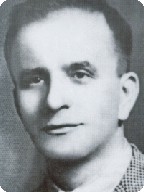
BORIS SPIROV
Dr. Boris Spirov was born in the village of Brzdani, Kichevo, on 22 September 1898. He was from a family of farmers, some of whose members emigrated, and some others were involved in the revolutionary movement. His father and his uncle were village elders, taking part in the Macedonian revolutionary movement for liberation. Dr. Boris Spirov himself was member of VMRO-United.
He finished primary school in his village and three high school grades in the local Pro-gymnasium, which the students called “intern of the egzarchs”, at the same time working as a shepherd and farmer.
He continued his education in Sofia, where his father opened a bar, which was inherited by Spirov’s brother, and Boris worked there in order to secure finances for further education. In 1919 he successfully completed the gymnasium in Sofia. In 1921 he began his medical studies in Austria.
He continued his medial studies in Leipzig (Germany), where he graduated in 1928, and later acquired PhD degree in the field of medical sciences. For a while he worked as a doctor in Pleven (Bulgaria), and later opened private practice in Pleven.
In 1928 he was member of the Bulgarian Labour Party, and from 1931 he was member of the illegal Communist Party of Bulgaria. Because of his communist activities he was often prosecuted, imprisoned, tortured and even sentenced to death twice and pardoned in the last moment. As President of the District Committee of the National Front of Pleven (Bulgaria), he actively participated in the taking over of the authority from the fascists on 9 September 1944, and he also participated in the organisation of the new authority of the people.
On 20 September 1944 he took active participation as a volunteer in the “Goce Delchev” brigade, established in Sofia, and was the Head of the medical service. He had the same position in Pehcevo, in the headquarters of the Bregalnica-Strumica corpus.
On 27 September he became member of ASNOM, as people’s deputy from Kichevo, and from December of that year he was Secretary of the Presidium of ASNOM. At the same time he was member of the Executive Committee of UNLF (Unified National Liberation Front). On 16 April 1945 he was re-elected as first Secretary of the Presidium of the National Assembly of the People’s Republic of Macedonia.
In 1946 he was appointed Minister of Social Affairs, and in November 1946 he was elected as President of the Constitutive Assembly of the People’s Republic of Macedonia. Later he was appointed as the first Vice-President of the Presidium of the National Assembly.
He was one of the founders of the Medical Faculty in Skopje, and took part in its further activities, performing leading function, such as Director of the Teacher’s Department and a Professor. | |
|
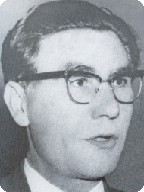
LAZAR KOLISHEVSKI
Lazar Kolishevski was born in Sveti Nikole, on 12th of February 1914. Before the War he was a metalworker. He finished military and craftworks school in the Military and Technological Institute in Kragujevac. As a student and worker he participated in the work of the progressive youth and workers movement. He was one of the leaders of the progressive youth. Because of the political activities he was arrested and expelled.
Kolishevski was Secretary of the Party Committee of the Military and Technological Institute in Kragujevac and Organizational Secretary of the Local Committee of CPY. As a Delegate he participated at the Fifth Conference of CPY in 1940 in Zagreb. Because of his political activities he was dismissed from the Military and Technological Institute. After the decision of the Regional Committee of the Communist Party of Yugoslavia for Serbia, at the beginning of 1941, he started to work in Smederevska Palanka on formation of the Party organization.
After the capitulation of the Kingdom of Yugoslavia, by the decision from the Central Committee (CC) of CPY, he returned to Macedonia and worked as an envoy of the Central Committee of CPY for Macedonia on consistent implementation of the policy of the Communist Party of Yugoslavia for armed uprising. He confronted the then Secretary of the Regional Committee of CPY for Macedonia, Metodija Shatorov - Sharlo, who, without the knowledge of the Central Committee of CPY, and supported by the Central Committee of the Bulgarian Labour Party, wilfully attached the Macedonian Party Organization to the Bulgarian.
By the end of August 1941, by an intervention to the Communist International by the CC of CPY and by Tito himself, the Macedonian party organization was attached back to the Communist Party of Yugoslavia, and Kolishevski was elected as Secretary of the Regional Committee of CPY for Macedonia and leader of the Regional Military Headquarters.
In early November 1941 he was arrested by the Bulgarian police. Because of his revolutionary activities he was sentenced to death. Later the capital punishment was altered to life imprisonment. He was in the Bulgarian prison of Pleven until the capitulation of the Fascist Bulgaria on 9 September 1944, when he returned to Macedonia.
With the formation of CC of CPM, in March 1943, he was elected its Secretary and held the position until July 1963. Kolishevski was a Delegate at the Second Meeting of ASNOM and was a member of AVNOJ, as well as Delegate at the First Meeting of ASNOM and member of ASNOM. At the Second Meeting of ASNOM he was elected its President.
Since 1944, he was continuously elected as Member of Parliament in the People’s Assembly of the Republic of Macedonia and the Federal National Assembly.
In March 1945 he was unanimously elected as the first President of the first People’s Government of the Democratic Federative Macedonia, and since 19 December 1953 he was President of the National Assembly of the People’s Republic of Macedonia. He was re-elected on 15 April 1958, and carried out this duty until 26 June 1962.
From 1963 to 1967 he was President of the Federal Council of SSNRJ. From 1967 to 1972 he was member of the Council of the Federation, and from 1972 to 1984 he was member of the Presidency of SFRY. After the death of Josip Broz Tito, for a brief period of time he was President of the Presidency of SFR Yugoslavia.
He received the highest ranking Yugoslav medal - the Yugoslav Big Star, as well as Medal of Honour for the people 1st rank; Brotherhood and Unity 1st rank; medal for Courage, Partisan Memorial 1941, and was declared National Hero. He died on 6 July 2000.
|
|
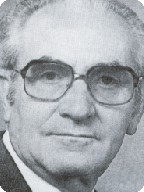
LJUPCHO ARSOV
Revolutionary, statesman, national hero and one of the most distinguished and most active social and political workers and leaders in the Republic of Macedonia. Born on 19 May 1910 in Stip in a salesman’s family that was actively involved in the National Liberation Movement of the Macedonian People since the Ottoman Empire and between the two World Wars.
As an adolescent he was included in the youth and workers’ movement. He was member of the CP of Yugoslavia since June 1940. He was Secretary of the Party’s cell and member of the First Regional Committee of CPY in Belgrade. In June 1941, after imprisonment in Belgrade, by order from the Communist Party of Yugoslavia he went to work in Stip.
Before World War II, as an accountant, he worked in the Association of the bankers, insurers and trade and industry workers in Belgrade. As member of the District Committee of Stip and Bitola, in 1941 he participated in the preparations of the armed struggle in Macedonia, which started on 11 October 1941.
In the spring of 1942 until March 1943 he was in Bulgarian prisons and camps because of his activities in the liberation movement. From June 1942 he was Member of the Regional Committee of CPY for Macedonia, member of the Interim Committee of the Headquarters of the National Liberation Movement and the partisan squads in Macedonia.
After his return from prison he was Secretary of the Fourth Regional Committee of CPM and member and Secretary of the Fifth Regional Committee of CMP. Until autumn 1943 he was member of the Headquarters of the Fifth Operational Zone and leader of the actions and activities of the Kozjak Partisan squad. Since 1944 until the Fourth Congress of CPM he was member of the Central Committee of CPM, and from the Fifth until the Eight Congress he was member of the Central Committee of CPY.
On the First Session of ASNOM he was elected as Secretary of the Presidium (Presidency of ASNOM). He was elected as Vice-President and Minister of Finances in the first Macedonian People’s Government, and then as President of the Committee for State Control of Macedonia.
From January 1948 until December 1953 he was Minister of Labour in the Federal Government of Yugoslavia. In the period 1953 to 1960 he was President of the Executive Council of the Assembly of the Republic of Macedonia, and member of the Federal Executive Council in the period 1960-1962. From 26 June 1962 until 24 June 1963 he was President of the People’s Assembly of the Republic of Macedonia. From 1963 to 1967 he was President of the Republic’s Conference of SSRNM.
In the same period he was again President of the Executive Council of the Assembly of the Republic of Macedonia. From 1967 to 1971 he was Vice-President of the United Conference of SSRNY, member of the Yugoslav Federation Council, and after 1979 he was member of the Presidency of SRM, as well as its President. Until 1974 Arsov was elected in every mandate of the Assembly of SRM and in the Federal Assembly.
He is a national hero of Yugoslavia and Hero of the Socialist Labour. He was also awarded Partisan Memorial 1941. He tragically lost his life in 1986.
| |
|
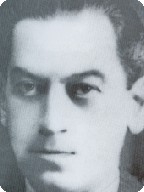
DIMITAR NESTOROV
Born in Struga on 10 June 1890. Attended elementary school in his home town, and completed classical gymnasium in Bitola in 1909. A year later he worked as a teacher in Struga, after that leaving for Geneva, Switzerland, where he studied medicine. Full of progressive and revolutionary ideas, he was immediately involved in the progressive student movement in Geneva, and was one of the organizers of the movement for free Macedonia. He was author of the text of the Memorandum adopted at the international conference of the League of Nations held in 1919 in Berlin which promoted in the European public the demand for recognition of the Macedonian nation and state.
In Switzerland Nestorov led with great enthusiasm the activities of the student organization, members of which were many of the Macedonians studying in Geneva, Zurich and Lausanne. The main mottos of the Macedonian students were: ”Macedonia to the Macedonians”, “Free Macedonia” and “Independent Macedonia”.
After graduation in 1921, Nestorov went back to Struga, and later worked and lived in Bitola. Very soon, because of his attitude towards the citizens, he became well known and was nicknamed the “people’s doctor”. In 1924 malaria and other infectious diseases struck Bitola and the surroundings. Dr. Dimitar Nestorov and his team of dedicated young doctors had an important contribution in the eradication of the diseases.
During the occupation, Nestorov was actively involved in the people’s movement. The first People Liberation Council, whose President he later became, was established in his house. His political activity was noticed by the occupational forces and soon he was arrested and transported to Bulgaria to serve his sentence.
Together with Dr. Vukasin Popadic, his wife Mirjam, Dr.Duma and Dr.Trifun Panovski, he organized the collection of medical supplies and other kind of help for the newly established military units of the partisans. He actively participated in the People’s Liberation Movement in the partisan base near Demir Hisar. In 1944, at the height of the preparations for the First Session of ASNOM he was appointed as a co-member and later, on 30 December that year, he became member of the Presidium of ASNOM. In April 1945 he was appointed Minister of Health Care and he initiated the establishment of the Medical Faculty in Skopje.
In the period from 30 December 1946 to 30 December 1947 dr. Boris Spirov was President of the People’s Assembly, and after he left the position, Dimitar Nestorov took over this position and performed it with great success until 3 January 1951.
Nestorov also worked as director in the Ministry of Health Care. Later he settled in Bitola where he was director of the town’s hospital and health care representative of the Government for Bitola and the surroundings. He was also member of the Assembly of the Republic of Macedonia and of the Federation, and performed other high ranking duties.
In 1945 he was awarded the Order of Merit of second degree, and in 1961 he received the Order of Labour with Golden Wreath. He retired in 1964. Dimitar Nestorov died on 7 February 1968.
| |
|
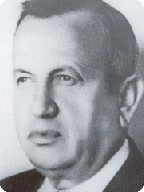
DIMCE STOJANOV - MIRE
Dimce Stojanov - Mire participated in the People’s Liberation Movement and was member of the Presidium of ASNOM. He was born in 1910 in Prilep and graduated history from the University in Belgrade. From 1935 until 1940 he worked as a professor in Prilep, and later in Kratovo and Lovec (Bulgaria). He was actively involved in the communist movement.
Because of his anti-fascist activities he was sent to the concentration camp Cuculigovo (Pirin Macedonia). After getting out of prison, he took part in the battles of the Second People’s Liberation Brigade, and later he joined the Fifth Brigade. He was elected member of ASNOM, and on its Second Sitting he was elected member of the Presidium responsible for education.
After the liberation Dimce Stojanov - Mire was appointed on high ranking state and political positions, including President of the National Assembly of the People’s Republic of Macedonia. His was elected unanimously President on 4 January 1951 by all the members of the Assembly. After the election he addressed the members of the Assembly with the words:
“We, on our part, will try to prove worthy of this great honour and trust, and with our work we will strive to contribute to the overall efforts of our people to build socialism.”
At the same session the President of the Assembly informed the people’s representatives that after the Second Sitting the National Assembly has received numerous telegrams from all over the PR Macedonia asking the National Assembly, as the highest body of the people’s authority, to adopt a law on abolishing the use of veil.
Dimce Stojanov also championed the strict use of the Constitution and demanded from the representatives to make efforts for further strengthening of socialist democracy in order to improve the situation and to intensify the moral and political unity of the Macedonian people, strengthen the brotherhood and unity of our nation with the other nations and nationalities.
Dimce Stojanov - Mire also worked as director of the Archives of Macedonia in the period 1960-1978. He died in Skopje in 1991.
| |
|
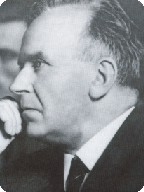
VIDOE SMILEVSKI - BATO
For more than four decades Vidoe Smilevski - Bato was on the forefront of the Revolution whenever his Party needed him. As an established and hard-working fighter for the revolutionary movement - organizer within the Party, leader, statesman, versatile social worker, wherever he worked, he left his lasting trace that was embedded in the freedom of the Socialist Republic of Macedonia. Bato had vast revolutionary experience.
He was born on 14 August 1915 in the village of Nikiforovo near Mavrovo and Gostivar. He comes from a family of migrants and felt the bitterness of the migration, often the fate of the Macedonian people in their struggle for survival and bare existence. As a child he worked in his father’s shop in Belgrade. From the hard-earned money his parents tried to enable him to study. He continued to work and go to school at the same time. After he finished elementary school, high school and state trade academy, he studied economy, but the war prevented him from continuing his education. His revolutionary activities until 1944 were mainly in Belgrade and in Serbia. In July 1994 the Party sent him to Macedonia that was preparing for the historic Meeting of ASNOM. As a participant in ASNOM, he experienced the historic moments of creation of the free state of the Macedonian people and the minorities living in Macedonia. There, with renewed revolutionary enthusiasm, he continued his work as Secretary of the Forth District Committee of the Communist Party of Macedonia. He was elected as Member of the Central Committee of CPM, and in October he took over the position of Secretary of the First District Committee of the Party in the area of Skopje.
After the victory, he used his vast revolutionary experience in the reconstruction and building of the destroyed country, contributing to the development of the governing of the people and the socialist revolution.
Apart from the many duties which he performed in CPM, he was continually elected as member of the Central Committee of CPY from the Fifth until the Eight Congress, and he was member of the Central Committee of the Presidency of CPYM since 1969. He was also President of the General Council of the Association of the NLM fighters from Macedonia and Vice-President of the General Council of the Association of the NLM fighters of Yugoslavia. Since the beginning, he was one of the founders of the idea for giving the power to the people and continuously worked on its development and strengthening. During 1947-1950 Vidoe Smilevski-Bato was Vice-President of the Government of the PR of Macedonia, in 1950-1951 he was Vice-President of the Presidency of the People’s Assembly, from 1952 to 1954 he was Vice-President of the Government of the PRM, and in the following two years he returned to the Assembly and from 25 July 1963 to 12 May 1967 he was President of the Assembly of the Republic of Macedonia.
In the following years he was President of the Federal Council of the Federal Assembly, member of the Council of the Federation, member of the People’s Council of the Federal Assembly, President of the Executive Council of the National Fund for crediting the faster economic development of the underdeveloped areas. He died on 8th September 1979, while he was President of the Presidency of the SR of Macedonia and member of the Presidency of the Central Committee of CPM.
He was awarded as National Hero, Hero of the Socialist Labor, and with Partisan Memorial 1941.
| |
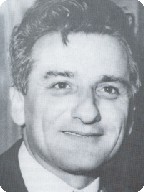
MITO HADZIVASILEV - JASMIN
Mito Hadzivasilev - Jasmin was born in Kavadarci, the city of the beauty of wine, on 21 December 1922. Later he moved to Bitola, where he finished high school. During school he started to cooperate with the Progressive Youth Movement. In 1940, as an 18 years old adolescent, he became a member of the CPY. Before the War he was member of the District Committee in Kavadarci and Secretary of the local committee of SKOY.
He was imprisoned because of his political activities. Until the liberation Mito Hadzivasilev - Jasmin performed important functions in the National Liberation Movement: Deputy Political Commissar of the Third operational Zone of the National Liberation Movement in Macedonia, and Deputy Political Commissar of the Second National Liberation Brigade.
From 15 January 1945 he was member of the District People’s Council in Bitola, and, from late 1945 until 1 January 1948 he was editor-in-chief of the newspaper “Nova Makedonija”. In the area of journalism he achieved exceptional results.
He wrote numerous articles for the daily weekly press. He was author of many books and brochures, including on the Macedonian national history such as: “VMRO-United”; “Jane Sandanski” and “On the Great Bulgarian Chauvinism”; from the area of social studies “Emphasis on the Man”, “Reflection-Expression”, “On the Contradictories of Socialism”.
Mito Hadzivasilev - Jasmin was Director of the Informational Office of PRM and Commissioner for Campaigning and Propaganda in the General Council of the People’s Front of Macedonia. In 1962 he was again appointed as editor-in-chief of “Nova Makedonija”.
For almost two decades Mito Hadzivasilev - Jasmin was member of the highest party and state bodies of the Republic. At the First Congress of CPM he was elected a candidate, and then Member of the Central Committee of CPM. At the Second and Third Congress of CPM he was again elected among the highest party leadership, and at the Seventh Congress of CPY he was elected as a Member of the Central Committee. Since 1957 he was President of the Ideological Committee of the Central Committee of CPM, and from 1964 to 1967 he was member of the Executive Council of the Central Committee of CPM and Secretary of the Central Committee of CPM for ideological issues. He was also member of the Presidency.
Mito Hadzivasilev - Jasmin performed important functions in the state bodies. He was Deputy in the People’s Assembly of PRM (Second, Third and Fourth Session), Secretary of the Executive Council of Macedonia, and he was Deputy in the Federal Assembly, as well as member of the Council of the Federation.
On 12 May 1967 he was elected to the highest position in that period - President of the Assembly of the Socialist Republic of Macedonia, with a mandate of one year. For his restless activities he received numerous awards. He died on 1 August 1968.
|
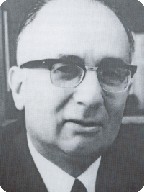
NIKOLA MINCEV
Minchev’s biography is filled with continuous activity and work even before the War, when he took part in the progressive youth and student movement, then as an active participant in the National Liberation Movement and the Revolution since its beginning in 1941, as well as during the period after the liberation in the socialist building of the country.
During his lifetime he had a vast working experience with many achievements and held various important positions in many areas of social life. He is considered one of the most prominent state and political activists in the Republic of Macedonia.
Minchev participated in the NLM in 1941. He was member of the CPY since 1943. One of the organizers of the First Tikvesh Partisan Squad, Commander of the Third Operational Zone, Secretary of the District and Regional Committee of CPM, member of the Headquarters of the National Liberation Movement and the Partisan Squads of Macedonia.
He was member and Vice-President of the Government of the Republic of Macedonia, Vice-President of the Assembly of the Republic of Macedonia, member of the federal Executive Council, President of the Executive Council of the Assembly of the Socialist Republic of Macedonia, member of the Council of the Federation, the Central Committee of CPY and the Central Committee of CPM, the Polit-Bureau of the Executive Committee.
He completed primary school in Kavadarci and teachers school in Skopje before the Second World War. He was a teacher in several Macedonian villages in the Kingdom of Yugoslavia. Before the Second World War, from 1940, he was a teacher in the village of Ljubanci near Skopje.
Then he went to the Skopje University, as a part-time student in the Department of Philosophy and Pedagogy. He comes from an old revolutionary family. Minchev was delegate at the Second Session of AVNOJ and at the First Session of ASNOM, and member of the Presidium of ASNOM. Minchev was the first Minister of Education in the first Macedonian Government. He signed the Decision on the First Macedonian Alphabet and the First Macedonian Orthography, and was one of the founders of the Faculty of Philosophy in Skopje.
For more than a decade, Minchev occupied high ranking positions in the Federation. He was Member of the Federal Executive Council and performed the functions Minister of Finance of Yugoslavia and Director of the Federal Institute on Economical Planning.
With his diverse and productive activities, Nikola Minchev has during his whole life contributed to the development of Republic of Macedonia. He was President of the Assembly of the Republic of Macedonia from 23 September 1968 to 6 May 1974. He died on 6 April 1997. He was received with many high acknowledgements for his contribution in the building of the Republic of Macedonia.
| |
|
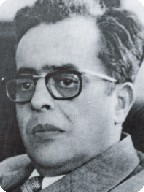
BLAGOJA TALESKI
He was born on 17 January 1924 in Prilep. Blagoja Taleski was one of the most prominent party and military leaders in the Republic of Macedonia. He was also a statesman. He grew up in a family of a craftsman with many children. As a 16 years old boy he became member of the Communists Party of Yugoslavia.
He was a participant in the Ilinden’s Demonstration in 1940, when he was arrested and imprisoned in the Skopje and Veles prisons, as well as in Ada Ciganlija’s prison. He participated in the preparations of the armed uprising. In October 1940 he was arrested and transported to Bulgaria. After his return from prison, Taleski was Secretary of the District Committee of CPM. He participated in the formation of the operational zone of the partisan squads “Dame Gruev” and “Goce Delchev”.
As party and military leader, he participated in the mobilization of the people from Prespa, Prilep, Krushevo and Bitola. He graduated from university and was one of the more active social and political workers and was awarded Partisan Memorial 1941. He held several leading functions in the Republic of Macedonia and in the Yugoslavian Federation.
He was Secretary in the Municipal Committee of Bitola, Chief of the Personnel Department of the Central Committee of CPM, Secretary of the city Committee of CPM, Secretary of the District Committee of CPM - Prilep, Secretary of the Central Board of SSRNM. From 1963 to 1966 he was President of the Control Committee of the Government of the People’s Republic of Macedonia; he was member of ASNOM from 1944 to 4 September 1946.
He was a Deputy in the First and Second Convening of the Constitutive Assembly of Macedonia from 4 September 1946 to 3 December 1950. He was a Deputy in the Second, Third and Fourth Convening of the Federal Assembly (Federal Council) from 26 March 1950 to 8 June 1963. He was also member of the Council on Economy of the Federal Assembly from 3 June 1963 to April 1965.
In the Assembly of the Socialist Republic of Macedonia, he was a member in the Council on Economy of the Assembly of SRM from 9 April 1967 to 9 April 1969, and member of the Council on Economy of the Assembly of SFRY from April 1967 to April 1974. Taleski was President of the National Council of the Unions of Macedonia from 1963 to 1966. He was also active in the field of economy.
Among other engagements, Taleski was President of the District Cooperative Alliance of Bitola and Secretary General of the Cooperative Company “Jugotutun” in Skopje. He was President of the Assembly of the Republic of Macedonia during two mandates, each lasting for 4 years, i.e. from May 1974 to May 1982.
He was Member of the Presidency of CPM and President of the Presidency of the Socialist Republic of Macedonia. He died in 2001.
| |
|
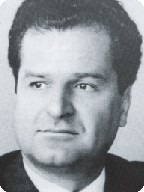
BOSHKO STANKOVSKI
Born on 26 October 1925, in Brusnik, Bitola. Participated in the NLM and was awarded Partisan Memorial 1941. He was a member of SKOJ from January 1941, member of the Communist Party of Yugoslavia from November 1943. He graduated from the Institute of Social Studies in Belgrade. Stankovski was Member of the Secretariat of the Federal Council of the Association of the Unions in Macedonia, Secretary of the Executive Committee of the Communist Party of Macedonia (CPM), President of the Conference of SSRNM, Member of the Presidency of Central Committee of CPM. On the 8th Congress of CPY he was elected as a Member of the Central Committee of CPY.
As a young man, Boshko Stankovski was included in the activities of the Youth Liberation Congress, and later he was elected as President of its Central Committee.
From 1947 to 1948 he attended the Party School of the Central Committee of CPM, and in 1951/1952 he was a teacher and deputy principal of this School. In 1952/1953 and 1953/1954 he was a student on the Institute of Social Studies in Belgrade, where he graduated with highest marks. From 1960 to 1962 he was Head of the Marxist Centre of the Central Committee of CPM.
Because of his dynamic social and political activity and work in the state government bodies, Boshko Stankovski is a laureate of many awards. He was awarded the Order of the Republic, Order of Labor with Red Flag, Order of Brotherhood and Unity with Silver and Golden Wreath and Medal for Courage. He also received several medals of honour from other countries.
At the Constitutive Session of the Assembly of Socialist Republic of Macedonia, third Meeting of the Delegates, held on 28th April 1982, on which the new composition of the Presidency of SRM and of the Executive Council were constituted, Boshko Stankovski was elected President of the Assembly of the Socialist Republic of Macedonia. On that joint meeting of all the Councils of the Assembly, the new members of the Presidency of SRM were elected: Dzemail Vejseli, Vancho Apostolski, Filip Brajkovski, Tome Buklevski, Angel Chemerski, Blagoja Taleski, Blagoj Popov and Fahri Kaja. Dragoljub Stavrev was elected President of the Executive Council of the Assembly of SRM.
Boshko Stankovski was President of the Assembly until 28th of April 1984. He tragically lost his life on 13th March 1987.
| |
|
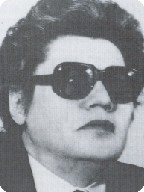
KATA LAHTOVA
Born on 30 August 1924, in Radovish. From 1944 she took part in the National Liberation Movement (NLM) and joined the Communist Party of Yugoslavia. In the NLM she was a Political Commissar of her company and Deputy Political Secretary of the battalion.
In her long working experience and activity after the liberation of the country until the end of her life (24 February 1995), she gained rich experience, performing many leading functions and duties in the state bodies, as well as in the social and political organizations. She was Secretary of the Municipal Committee of the Communist Party of Macedonia (CPM) in Radovish, member of the Bureau for Campaigning and Propaganda of the Central Committee of CPM, Secretary of the Central Committee of the CPM in Ohrid, Secretary and President Committee on Statutory Issues of CPM, member of the Central Committee of CPM, member of the Central Board of the National Front of Macedonia, President of the Conference on Social Activity of Women, member of the Secretariat of the Federal Committee on the Social Status of Women in Yugoslavia, delegate to the Assembly of SRM and the Assembly of SFRY, President of the Social and Political Council of the Assembly of SRM and Vice-President of the Assembly.
In line with the period in which she worked, Kata Lahtova was established as an ardent advocate for development of the social, political and economic life, for establishment of the society on the basis of self-government, the dominant role of the working class, as well as for development and strengthening of the brotherhood and unity, equality and union of the Macedonian people and the minorities.
With her professional and moral qualities and abilities she was committed to the implementation and development of the collective work and decision making, to the personal and collective responsibility, and was adamantly against anti-socialist and anti-self-government attitudes, as well as against all kinds of nationalism, separatism, chauvinism and irredentism.
She was President of the Assembly from 28th April 1984 until 25th April 1985.
| |
|
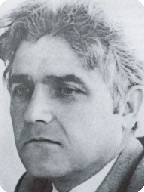
STANKO MLADENOVSKI
Before being elected as President of the Assembly of the Republic of Macedonia, as an important figure and true representative of successful leadership in the filed of economy in the Republic of Macedonia, Mladenovski worked in the factory for the production of pipes and profiles “11 Oktomvri” in Kumanovo, where he was one of the directors. From 1965 to 1970 Stanko Mladenovski worked in a water supply company as Head Engineer. Two years before being appointed Director of production he was an engineer. In 1984 he became Director of the factory “Iskra” in Kumanovo.
Mladenovski was born on 9 November 1937 in Vracovce, Kumanovo. He graduated from the Technical Faculty, Department of Construction. 1974 to 1981 he was member of the Civil Defense Committee in the Council of the Municipality. He was also member in the working bodies and the social and political organizations in the factories where he worked. From 1967 to 1971 he was Member of the Municipality Conference and the Committee of the Communist Party in the Municipality of Kumanovo; from 1974 to 1980 he was Secretary of the Municipal Committee of the Communist Party of Macedonia, and after that President of the Municipality Conference of the Communist Party of Macedonia. Mladenovski was also Member of the Socialist Alliance of the Working People of Macedonia (SSRNM), from 1974 to 1981, and member of the Central Committee of the Communist Party of Macedonia between the 7th and the 8th Congress.
In the Assembly of the Republic of Macedonia he was a Delegate in the Development and Finance Committee and in the Committee on Urban, Residential and Communal Issues. He was an active member of the Socialist Alliance of the Working People of Macedonia - the largest social and political organization at that time.
Stanko Mladenovski was elected President of the Assembly of the Socialist Republic of Macedonia at the joint session of the three Houses of the Assembly, which was held on 25th April 1985, with a one-year mandate. His election was unanimous, with a public vote from the delegates. One of the items on the agenda of this constitutive session was the debate on the implementation of the constitutional role of the Councils of Associated Labor, as well as some topical issues concerning the functioning and financing of the local communities.
Coming from the field of production and associated labor, Stanko Mladenovski was committed to achieving faster economical development, promotion of the legal efforts in this area, and harmonization of the legislative solutions. He was President of the Assembly of the SRM until 28 April 1986.
| |
|
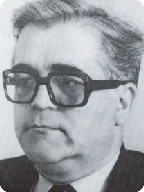
VULNET STAROVA
It is important to emphasize that Vulnet Starova, Albanian, professor with doctoral degree, was the last President of the Assembly of Delegates of the Socialist Republic of Macedonia. He was elected to this position at the Constitutive Session of the Assembly of the 4th convening of the delegates on 28th of April 1986, when the new composition of the Presidency and of the Executive Council of SRM was elected. He remained in office until the first multi-party Assembly was constituted, on 8th January 1991. After that he worked at the Medical Faculty, the Children’s Clinic, and as a professor.
He died on 5th of August 1995.
His life was filled with great dynamics. He was born on 6th of May 1934 in Podgradec, and later his family moved to Skopje. As a Doctor, specialist- pediatrician with PhD in medical sciences, he was involved in the activities of many social and political organizations and in the Government bodies. Among others, he was a Delegate in the Federal Council of the Assembly of SFRY, and from 1965 to 1969, Delegate in the Assembly of the Socialist Republic of Macedonia, in its Organizational and Political Council.
He was also a member of the Presidency of the Union on Economic Issues, member of the Statutory Committee of the Communist Party of the Republic of Macedonia, member of the Central Committee of the Communist Party of the Republic of Macedonia, the Conference of the Socialist Alliance of the Working People of Macedonia (SSRNM), and President of the Department on Health Care. At one time he was President of the Yugoslav Committee for Cooperation with the World Health Organization, and he was a member of the Yugoslav Committee for UNICEF. For several years he was at the head of the Headquarters of Civil Defense in Macedonia.
From 1974 to 1978 Starova was Vice-President of the Executive Committee of the Assembly of SRM. In the same period he was Member and Secretary of the State Secretariat on Health Care and Social Policy. He was also President of the Council of Labor, Health Care and Social Policy. From 1978 to 1986 he was Delegate in the Assembly of SFRY - Federal Council.
He was awarded three medals: Brotherhood and Unity with Golden Wreath, Labor with Red Flag, and Order of Merits with Silver Star.
As President of the Assembly he worked on improvement of the efficiency of the Assembly as the highest body of authority when it comes to the rights and obligations of the State, and was dedicated to opening the Parliamentary House to initiatives and suggestions of all the participants in the Delegation System. |
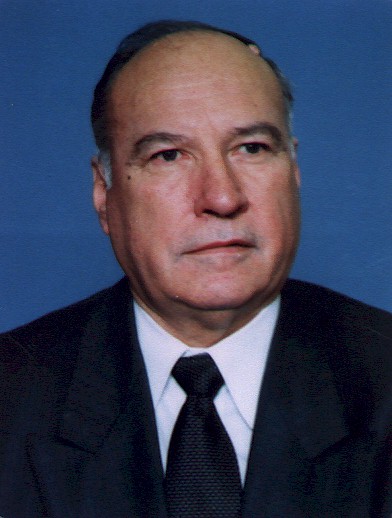
STOJAN ANDOV
Born 1935, in Kavadarci, R.Macedonia. Graduated from the Faculty of Economy in Skopje. Completed post-graduation studies at the University of Belgrade.
Vice-President of the State Executive Council, member of the Macedonian Delegation of the Chamber of Republics and member of the Federal Government in three mandates; participated in the negotiations in the contacts of former Yugoslavia with EEZ (1971-1987). He is considered an outstanding expert of economic matters and market-oriented politician - Ambassador of former Yugoslavia in Iraq (1987-1991) - founder and lider of the Liberal Party of Macedonia until the joinning with former DP in 1997 when he became Chairman of the Council of the newly-established political subject. After the renewal of the Liberal Party of Macedonia, elected as member of its Executive Committee; elected as Vice-President of the Liberal International.
At the first multi-party elections, elected MP in the Assembly of the Republic of Macedonia and became its President in January 1991; re-elected at the secondary multi-party elections in 1994 as MP and President of the Assembly of the Republic of Macedonia until March 1996; elected as Member of Parliament in 1998) Chairman of the Committee on Monetary and Credit Policy and Banking; candidate for President of the State at the 1999 Presidential elections; on 30 November 2000, elected as President of the Assembly of RM.
NIKOLA POPOVSKI
Read more
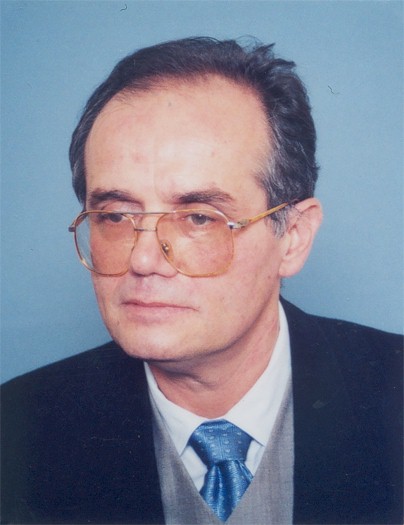
LJUPCHO JORDANOVSKI
PRESIDENT OF THE ASSEMBLY OF THE REPUBLIC OF MACEDONIA
Date and Palace of Birth: February 13, 1953, Stip, Republic of Macedonia
Marital Status: Married, 3 children
Education:
1975: Faculty of Electrical Engineering, University of Zagreb, Zagreb, Croatia, Graduated electrical engineering, Bachelor's degree; 1976: Faculty of Mathematics University of Zagreb, Zagreb, Croatia, division of applied mathematics; 1978: Faculty of Electrical Engineering, University of Zagreb, Zagreb, Croatia, Master's degree; 1985: Department of Civil Engineering at the University of Southern California, Los Angeles, CA, USA, Ph.D;
Academic Appointments:
1998 - 2003: Professor, Faculty of Natural Science and Mathematics, University "Ss. Cyril and Methodius", Physics department, Seismological Observatory; 1995 - 1999: Professor, Faculty of Mines and Geology, University "Ss. Cyril and Methodius", Stip, Republic of Macedonia; 1992-1995: Associate Professor, Seismological Observatory, Faculty of Natural Science and Mathematics, University "Ss. Cyril and Methodius", Skopje, Republic of Macedonia; 1987- 1992: Assistant Professor, - Institute of Earthquake Engineering and Engineering Seismology (IZIIS), University "Ss. Cyril and Methodius", Skopje, Republic of Macedonia; 1978 – 1987: Teaching Assistant, IZIIS - Skopje; 1982 – 1985: Teaching Assistant, Department of Civil Engineering at the University of Southern California, Los Angeles, CA;
Professional Appointments:
1992 - 2001: Head of Seismological Observatory, Faculty of Natural Science and Mathematics, University "Ss. Cyril and Methodius"; 1978 – 1991: Researcher, Section for Regional Seismic Studies, IZIIS – Skopje;
Specializations:
1979: Dames and Moore, London Office, United Kingdom; 1982: Six months UNESCO scholarship at the Department of Civil Engineering at the University of Southern California, Los Angeles, CA, USA; division: earthquake engineering; 1996: One month training at Kinemetrics Inc., Pasadena, CA, USA;
Expert and Consultant Missions:
1988: Two months in Mexico City, after the 1985 Michoacan (Mexico) Earthquake; 1987-1989: Member of national working group Task Group 1 (TG1); earthquake catalog, izoseizmal maps and strong motion data banks; 1991: Three months Visiting Professor at the Department of Civil Engineering at the University of Southern California, Los Angeles, CA; 1991: One months UNCHS-Habitat Consultant IRA/90/004, 1990 Manjil (Iran);
Political engagement:
1991-1995: Member of the Presidency of SDUM; 1995-1999: Member of the Central Committee of SDUM; 1999- 2003: Member of the Presidency of SDUM and the International Committee of SDUM; 2002: Member of Parliament and Chairman of the Committee on Elections and Appointment Issues; 2003: President of the Assembly of the Republic of Macedonia; 07.03.2004 - 12.05.2004: Acting President of the Republic of Macedonia.
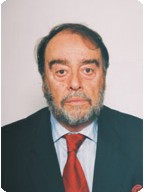
GEORGIEVSKI LJUBISHA
PRESIDENT OF THE ASSEMBLY OF THE REPUBLIC OF MACEDONIA
Liubisha Georgievski was born on 30 May 1937 in Bitola, Republic of Macedonia.
He graduated from the Department of Theatre and Radio Direction at the Academy of Theatre, Film, Radio and Television in Belgrade in 1974.
Liubisha Georgievski is a theatre and film director, playwright and essayist, theatre theoretician and professor of theatre direction and playacting at the Faculty of Dramatic Arts in Skopje.
He was a visiting professor of theatre ontology and phenomenology at the University of Southern California in Los Angeles and University of Texas at Dallas, USA.
Liubisha Georgievski is a socially engaged individual, journalist and polyglot. He has published over ten books. As a film director, he has directed four films. As a journalist, he has authored over 200 columns in the daily Dnevnik.
As a director, he has worked in Los Angeles and Dallas, in Poland, Romania, Italy, Croatia, Serbia and Bulgaria; his scripts and plays have been staged in Moscow, Vienna, Paris, Warsaw, Budapest, Bucharest, Lodz, Sofia, Belgrade, Zagreb and Trieste.
At the 1994 Presidential election, he was VMRO-DPMNE presidential candidate.
In the period 2000-2004 he was Ambassador Extraordinary and Plenipotentiary of the Republic of Macedonia to the Republic of Bulgaria. Liubisha Georgievski speaks English, French, Italian, Russian and Bulgarian, and uses Slovenian, Polish and Romanian language. He lives in Skopje.